| Category | Dissertation | Subject | Law |
|---|---|---|---|
| University | Middlesex University London | Module Title | LAW3101 Land Law |
| Academic Year | Semester 2, 2024-25 |
|---|
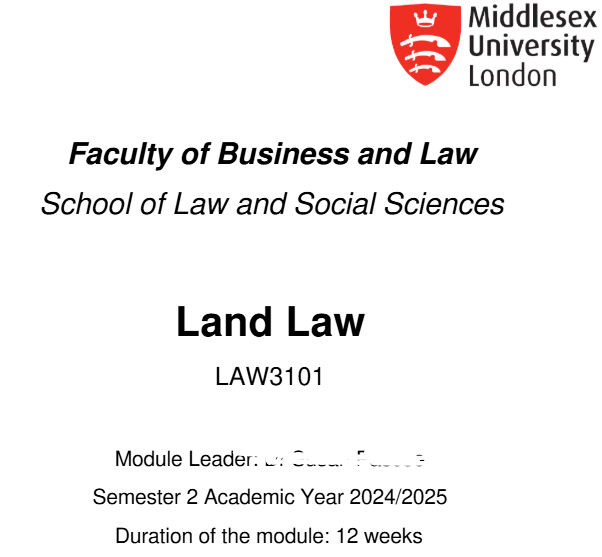
The schedule of workshops and seminar questions follows thereafter.
The module team will communicate with you mainly via email and through the Land Law module site in MyLearning. It is vital that you check your University email regularly and log onto the module site at least once a week.
It is not necessary to book an appointment during office hours; you just need to drop in. In the first instance, problems should be dealt with by talking to us after the teaching sessions.
Please be reminded that any overall module and course feedback can also be given to the student voice leader for your programme, which will be included in programme feedback sessions.
The module aims to provide a critical understanding of the law in the context of dealings in land. The course builds upon students' knowledge of legal principles by bringing these together with the rules of land law. Students' ability to evaluate issues and to solve land law problems virtually at a high level of understanding is enhanced. The module aims to develop` legal reasoning and logic, analysis and problem-solving skills' to enhance research skills and the use of primary source material.
Knowledge
On successful completion of this module, the student will be able to:
1. Demonstrate systematic understanding and curiosity of the primary legal materials of Land Law - legislation, case law and other relevant material;
2. Evaluate critically the principal legal concepts and principles of English Land Law;
3. Demonstrate comprehensive knowledge of a broad range of material which can be used in recognising complex issues arising from transactions in land.
Skills
On successful completion of this module, the student will be able to:
4. Exhibit resourcefulness, resilience, adaptability and empathy in analysing critically legal issues arising in Land Law by applying knowledge of legal principles and concepts and draw reasoned and argued conclusions supported by legal authority;
5. Demonstrate technological agility and a sustainable mindset in exercising significant, appropriate judgement in using legal databases, the internet and electronic retrieval systems in an academically sound way;
6. Communicate clearly, succinctly, accurately, analytically and grammatically in writing.
This module utilises a learner-centred and practical approach with the syllabus being addressed by concept videos and with workshops and seminars used to analyse the principal concepts of Land Law, evaluate the primary materials and promote critical analysis.
Workshops
A weekly two-hour interactive workshop will be used to set the material in the context of land dealings, outline the framework of the applicable legal principles, explain conceptually complex areas of law, direct students' preparation for seminars and build their understanding of the application of land law. Workshops will combine a variety of learning and teaching methodologies virtually and will complement online module material, such as key concept videos and activities, such as revision quizzes. Students will be expected to undertake research both in preparation for and after the weekly workshops.
Seminars
There will be two 90-minute seminars for each student each week for which students will have prepared answers, intended to facilitate student discussion of detailed points of law and application of the law to practical legal problems. Seminars enable students to develop communication skills by way of debates, delivering presentations, negotiating enhancing employability, and these communication skills are formatively assessed in seminars. Skills in the analysis of primary material, problem solving, debating of issues, use of research tools and time management are all informally assessed for formative purposes in seminar work.
Guest Speakers
Sessions of one hour in length will be held bi-weekly (starting in week 1) and will involve guest speakers to reinforce employability skills, personal and professional development and building career paths and networks.
(a) Formative assessment scheme
Skills in the analysis of primary material, problem-solving solving and debating of issues are informally assessed in seminar work.
In week 4, there will be a mock multiple-choice test to help prepare for the summative multiple-choice questions. Students will receive feedback electronically, and there will also be the opportunity for individual feedback, which will be helpful for the summative assessment.
In week 9, students can submit a bullet point list/plan of no more than 2 sides in length of their proposed coursework. This will assist preparations for the summative coursework. Individual formative written feedback will be given by the end of week 11.
(b) Summative Assessment Scheme
Part 1 is an in-class multiple-choice test comprising 12 questions to be taken within 45 minutes in week 6, which will account for 25% of the total mark. This will address learning outcomes 1,2,4, and 5.
Part 2 consists of a coursework of a maximum of 3,750 words to be submitted in week 13. This coursework accounts for 75% of the total mark. This will address learning outcomes 1,2,3,4,5, and 6.
Dixon, M (2023). Modern Land Law, 13th Edition. Routledge (also the Kortext eBook for the module)
Thomas, M (2024), Blackstone’s Statutes on Property Law, 32nd Edition, Oxford University Press
Mention is made here of a selection of Land Law textbooks which are available – you should make sure you source the latest edition. (The list below is in alphabetical order by author’s name.)
Bevan, C (2024). Land Law, 4th Edition. Oxford University Press
Bray, J (2022), Unlocking Land Law, 7th Edition, Routledge
Clarke, S, and Greer, S (2022). Land Law Directions, 8th Edition, Oxford University Press
Dixon, M, Bignell, J, Hopkins, N (2024), Megarry and Wade: The Law of Real Property, 10th Edition, Sweet and Maxwell
Davys, M (2019), Land Law, 11th Edition, Red Globe Press
George, M, and Layard, A (2022). Thompson’s Modern Land Law, 8th Edition, Oxford University Press
Glover, L., and Campbell-Pilling, (2021), Land Law, 2nd Edition, Hall and Stott Publishing
Kelly, R, and Hatfield, E (2017). Land Law: A Problem-Based Approach, Routledge
Nair, A. (2023). Textbook on Land Law, 19th Edition, Oxford University Press
McFarlane, B, Hopkins, N, and Nield, S (2020). Land Law, 2nd Edition. Oxford University Press
Sayles, V. (2022). Land Law Concentrate, 8th Edition. Oxford University Press
Schatzberger, E (2014), Blueprints: Land Law, Pearson
Smith, R. (2020). Property Law, 10th Edition, Pearson
Stroud, A. (2018). Making Sense of Land Law, 5th Edition, Red Globe Press
Cases should be looked up on Westlaw and the other electronic legal research facilities provided to all enrolled students.
There are some cases and materials books available, and a couple of them are listed here:
Bogusz, B, and Sexton, R (2022). Complete Land Law Text, Cases and Materials, 7th Edition, Oxford University Press
McFarlane, B, Hopkins, N, and Nield, S (2024). Land Law: Text, Cases and Materials, 6th Edition, Oxford University Press
Formative assessment: Formative assessments help show that you are learning and understanding the material covered in this module and allow us to monitor your progress towards achieving the learning outcomes. Although formative assessments do not directly contribute to the overall module mark, they do provide an important opportunity to receive feedback on your learning.
Summative assessment: Summative assessment is used to check the level of learning for the module. It is summative because it is based on accumulated learning during the course. It is the summative assessment that determines the grade that you are awarded for the module.
You will be provided with feedback on all assessments that is helpful and informative, consistent with aiding the learning and development process. The nature of the feedback shall be determined at programme level but may take a variety of forms, including: written comments; individual and group feedback; or other forms of effective and efficient feedback. If you have submitted a formative or draft assessment, you will receive feedback but no grade. The comments should inform you about how well you have done or tell you about the areas for improvement. All assignments should be submitted online.
Feedback on summative assessments will normally be provided within 15 WORKING DAYS of the published submission date.
External Examiners (external academic experts) review what we deliver at a programme level. The University reviews a sample of your work to quality assure the grades and feedback you received from the person who marked your work. Our External Examiners will sample a selection of modules from a programme, with more focus on outcomes between modules within a programme.
The following diagram provides an overview of the marking process for your module assessment.
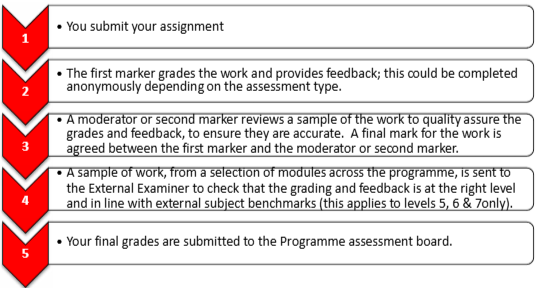
Results Confirmation
First Semester: Provisional Grades: At the end of your first semester, you can see your module grades in the Grades and Progress tile within MyMDX. These grades are provisional and not yet confirmed.
Second Semester: Final Grades and Progression: After your second semester, the Programme Assessment Board will confirm your grades. Then, your final module results, progression status, or finalist classification will be posted in the Grades and Progress tile within MyMDX.
Need Help or More Info?
We have worked with the Middlesex University Students' Union (MDXSU) to create an anonymous marking policy in response to student feedback. Anonymous marking ensures that your identity (your name, student number and other personal/identifiable information) is not made available to academics when they are marking your work. This means that you can have confidence that your assessments will be marked fairly and consistently. However, there are some forms of assessment for which anonymity cannot be guaranteed, and these are recognised in the policy.
Do You Need LAW3101 Dissertation of This Question
Order Non-Plagiarized DissertationAssessment 1 – In-class multiple choice test
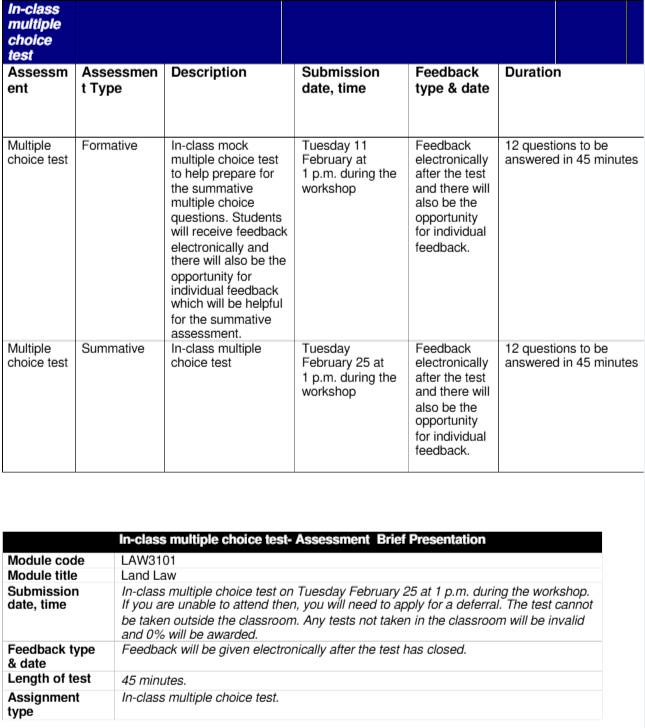
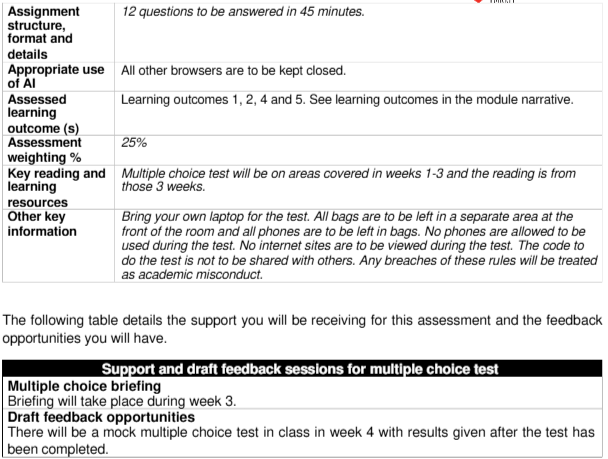
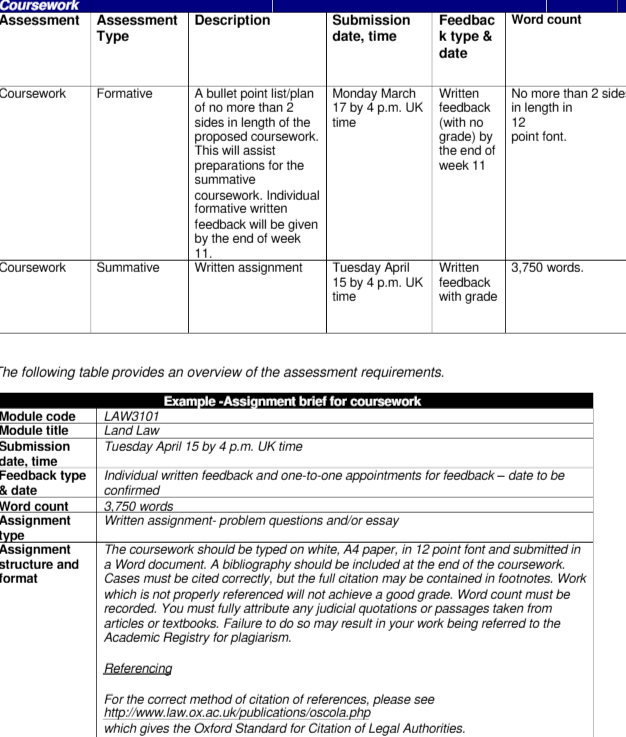
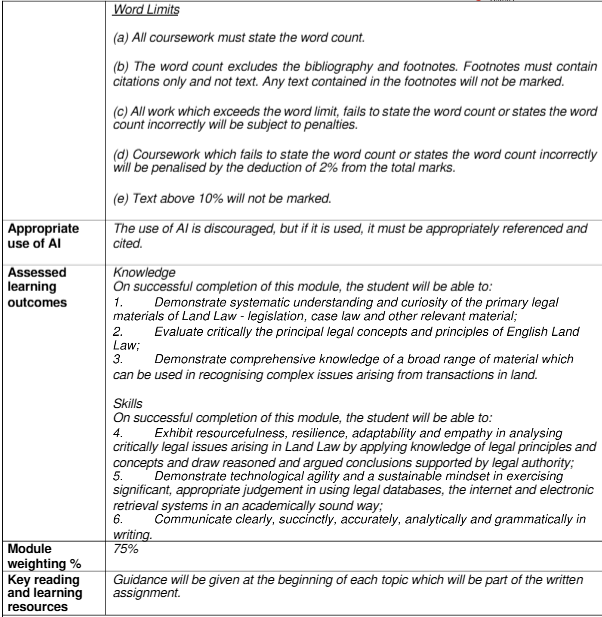
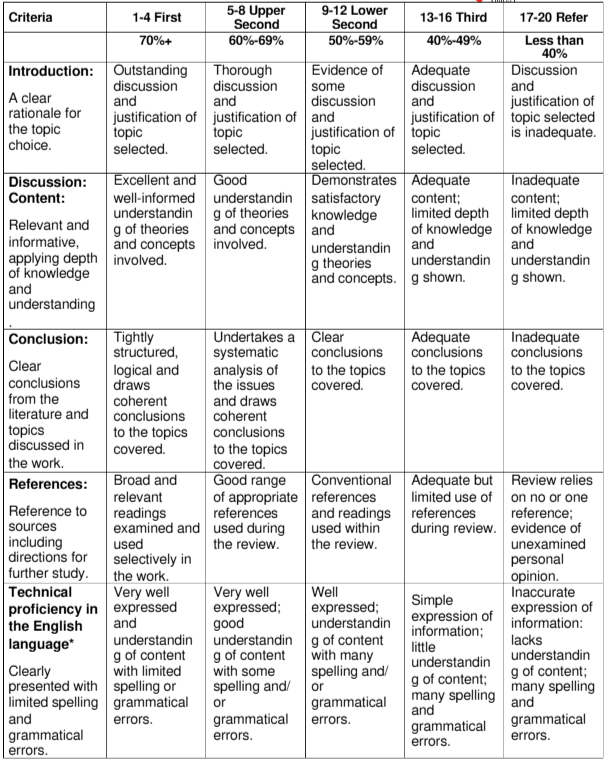
Learning outcomes
Knowledge: At the end of this workshop, you should know:
Skills: At the end of the workshop, you should be able to:
Learning outcomes
Knowledge: At the end of this workshop, you should know:
Skills: At the end of this workshop, you should be able to:
Learning outcomes
Knowledge: At the end of this workshop, you should know:
Skills: At the end of this workshop, you should be able to:
Learning outcomes
Knowledge: At the end of this workshop, you should know:
Skills: At the end of the workshop, you should be able to:
Learning outcomes
Knowledge: At the end of this workshop, you should know:
Skills: At the end of this workshop, you should be able to:
Learning outcomes
Knowledge: At the end of this workshop, you should know:
Learning outcomes
Knowledge: At the end of this workshop, you should know:
Skills: At the end of this workshop, you should be able to:
Learning outcomes:
Knowledge: At the end of this workshop, you should know of:
Skills: At the end of this workshop, you should be able to:
Learning outcomes
Knowledge: At the end of this workshop, you should know:
Skills: At the end of this workshop, you should be able to:
Learning outcomes
Knowledge: At the end of this workshop, you should have knowledge of:
Skills: At the end of this workshop, you should be able to:
Hire Experts to solve this dissertation before your Deadline
Buy Today Contact UsAre you looking for help with your LAW3101 Land Law? Don’t stress anymore! We offer expert law dissertation help at affordable prices. Our team of PhD writers provides well-researched, AI-free, and plagiarism-free work. We deliver before deadlines and are available 24/7 to support you. Whether it’s Business Management or any other topic, we’re here for you. You can also get free dissertation samples to check our quality. Improve your grades and reduce your stress—contact us today for reliable and professional assignment help that you can trust! We also provide Middlesex University London Assignment Samples that have been written by the phd expert writers. Contact us now!
Hire Assignment Helper Today!
Let's Book Your Work with Our Expert and Get High-Quality Content
